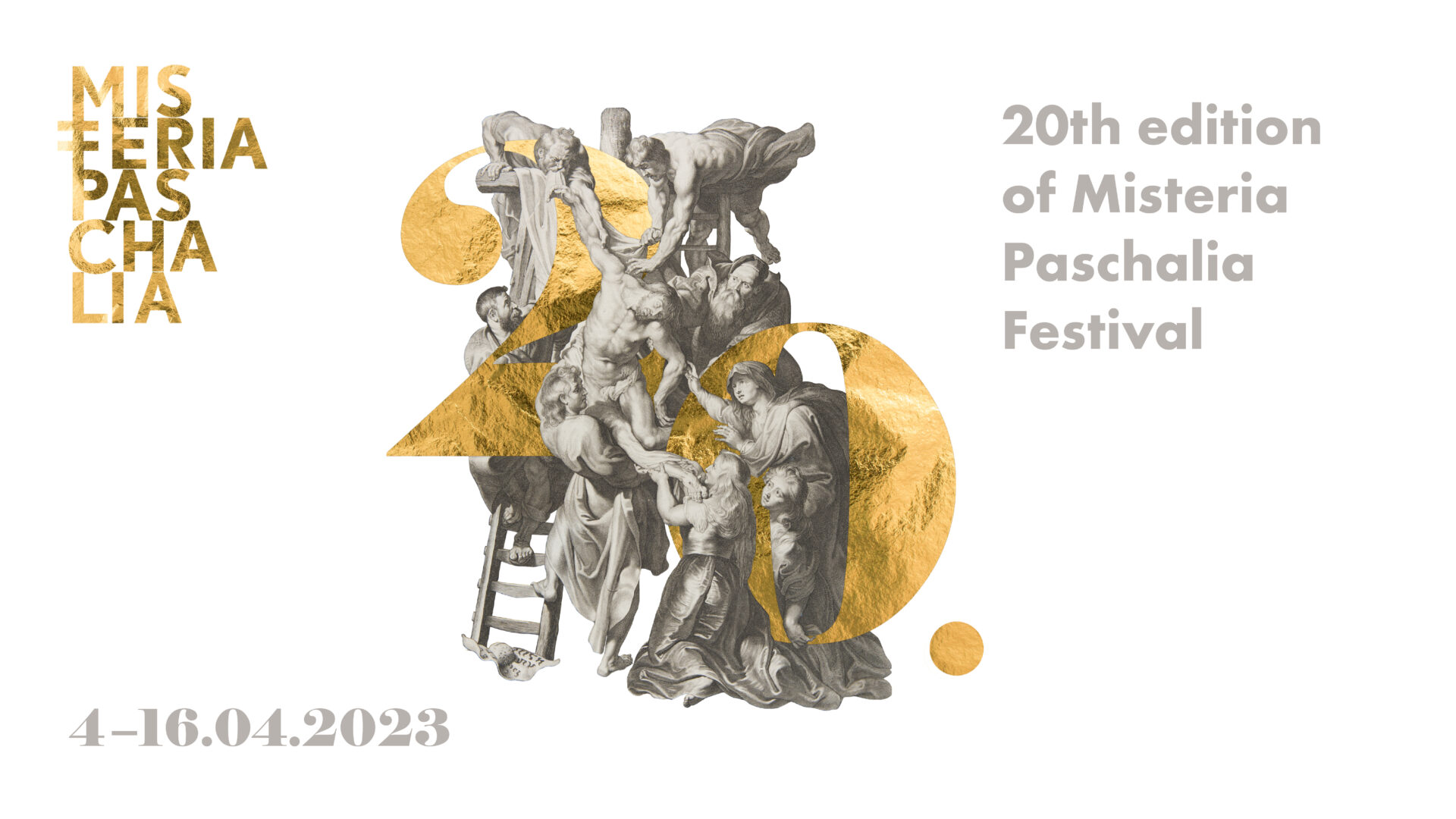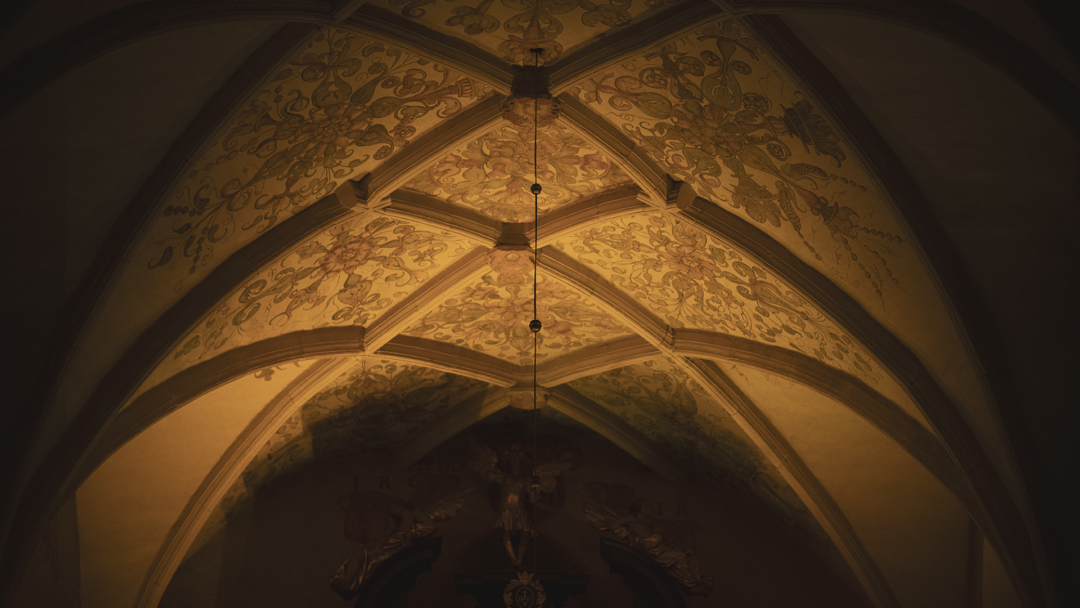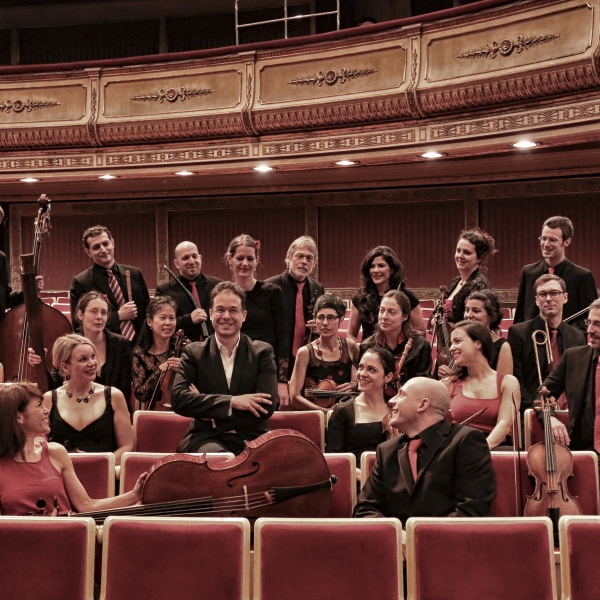Misteria Paschalia Festival
One of the most important early music festivals in Europe, Misteria Paschalia is held every year during Holy Week. Held for the 18th time, this year’s festival is a continuation of the journey through Europe launched in 2017. This time, Misteria Paschalia’s perambulations take us even further afield, exploring the music and culture of the Iberian Peninsula and its influence on Central and South America. Events run between 1 and 5 April.
From repertoires of nuns from mediaeval Spanish convents, via Spanish songs of the 17th century and the most important masterpiece of Portuguese music of the 18th century to extraordinary Baroque compositions from the New World, intertwining Iberian influences with native traditions, this year’s festival is a true cornucopia of music. There is surely no other European tradition as heavily influenced by myriad cultures, with traditional Arabic and Jewish sounds coexisting in harmony with music by Flemish and Italian masters. All this resounds during the 18th Misteria Paschalia Festival, streamed on PLAY KRAKÓW.
We kick off on Maundy Thursday with “Cantrix”, with Agnieszka Budzińska-Bennett and her ensemble Peregrina presenting music from royal Spanish convents in Sigena and Las Huelgas. The concert resounds with chorales and compositions exploring early polyphony recalling the acclaimed Notre Dame style. The concert was recorded especially for the festival at Ritterhaus Bubikon, the former mediaeval monastery of the Knights Hospitaller dating back to the 12th century; the organisers worked with the Order of Malta and Schola Cantorum Basiliensis.
On Good Friday (2 April), we head to Teatro Fraschini in Pavia in Italy where the concert “Mattutino de’ Morti” was recorded for the festival in collaboration with the Ghislieri Foundation. The composition by Davide Perez – Spanish composer born in Naples and working at the Portuguese royal court – is regarded as the most important masterpiece of 18th century Portugal. Written in 1770, it was first performed later the same year during a pilgrimage to the Nossa Senhora do Cabo sanctuary. Closing with rites for the departed, it served as a remembrance for deceased pilgrims and monks; dating back to the Middle Ages, the tradition was brought back in the 18th century on the request of the royal court. Since the original performance, Mattutino de’ Morti has been a part of the permanent repertoire of the Order of St. Cecilia in Lisbon, and it was performed during the annual service commemorating the dead until the late 19th century. Perez’s masterpiece will be accompanied by antiphons Salve Regina and In paradisum deducant te angeli, traditionally performed during funeral liturgies, arranged by the Cracovian composer Grzegorz Gerwazy Gorczycki from his acclaimed Conductus funebris.
Easter Saturday resounds with “Pasiones de España” – a meditative concert exploring the mystery of Easter. Soprano Mariana Flores and lutist Mónica Pustilnik take us on a journey to the Iberian Peninsula and beyond. Following in the footsteps of the Habsburgs whose rule stretched all over Europe between the 16th and 18th centuries, we explore Spain, the Netherlands and the kingdoms of Sicily and Naples.
The second part of the evening is dedicated to tonos humanos by José Marín (1619 – 1699) – some of the most beautiful secular vocal music of 17th-century Spain.
The festival culminates on Easter Sunday with “Carmina Latina” exploring polyphonic music written in Latin America in the late 16th and 17th centuries, intertwining influences from European and native cultures. The remarkable concert is presented by Argentinian conductor Leonardo García Alarcón – one of the most acclaimed performers of early music working today.
The 18th Misteria Paschalia Festival closes with the concert “Tribute to virtuosi”, starring the counter-tenor Raffaele Pe accompanied by our very own Capella Cracoviensis. The programme centres on Farinelli – stage name of Carlo Maria Michelangelo Nicola Broschi – perhaps the most famous castrato in history. He arrived in Madrid in 1737 on invitation by Queen Elisabetta Farnese, and he spend the following two decades as chamber musician for King Philip V and his successor Ferdinand VI, becoming highly influential in the process. His achievements at the royal court in Madrid inspired the programme of the finale concert, featuring a selection of arias performed by Farinelli and other Baroque virtuosi.
Passes for all events of the Misteria Paschalia Festival, at a special prices of 50 zlotys, will be available between 15 March and 1 April and include two VOD concerts and three livestreams. You will also be able to purchase tickets for individual events at 15 zlotys, available from the first day of the festival.
The event is organised by Miasto Kraków i KBF.
More news

Misteria Paschalia 2025 – here’s the programme!
Eight days, ten special locations and dozens of artistic events in Kraków, Tyniec and Wieliczka between 13 and 20 April 2025: that’s this year’s 22nd edition of the Misteria Paschalia Festival, one of Europe’s most important early music festivals, in a nutshell! Artistic director Vincent Dumestre takes the audience on a unique journey through music […]
read more
Keybord Days – apply for a masterclass and improvisation workshop!
Keyboard Days – a three-day celebration of keyboard instruments – include not only an exhibition and recitals but also masterclasses, improvisation workshops and panels. These events form the educational part of the Misteria Paschalia Festival. Masterclasses to be conducted by Jean-Luc Ho, Justin Taylor and Pierre Hantaï are addressed to students and graduates of music […]
read more
Misteria Paschalia 2024. Showcasing the programme of one of the most important early music festivals in Europe.
Eight days, ten locations, dozens of events… This year, the artistic direction of the Misteria Paschalia Festival was entrusted to Vincent Dumestre, who is already very well known among audiences in Krakow as the founder, artistic director and conductor of Le Poème Harmonique ensemble, whose concerts have been highly anticipated by festival audiences for many […]
read more
Anniversary edition of Misteria Paschalia! Explore the festival programme | 4–16 April 2023
In the coming year, we will enjoy the special 20th edition of Misteria Paschalia, which will provide an opportunity for a reminiscence journey into the past. The programme will focus on celebrating the festival’s history, its contribution to the development of the early music sector in Poland and the extraordinary bonds that have been forged […]
read more
Return to the Sources. Misteria Paschalia Festival 2022
Misteria Paschalia has been discovering and presenting compositions linked with Holy Week and Easter for many years. The festival continually evolves by inviting a new director-in-residence each year. Their different experiences and interests mean that every festival is unlike the previous, and we can experience events surrounding Easter with a fresh perspective. To make sure […]
read more
Early Mmusic Day
For the last nine years, the first day of spring has coincided with Early Music Day. The symbolic date is no accident, since it marks the birthday of J.S. Bach. The REMA European Early Music Network has established the event as a celebration of European music of the Middle Ages, Renaissance and the Baroque. This […]
read more
Misteria Paschalia Festival
One of the most important early music festivals in Europe, Misteria Paschalia is held every year during Holy Week. Held for the 18th time, this year’s festival is a continuation of the journey through Europe launched in 2017. This time, Misteria Paschalia’s perambulations take us even further afield, exploring the music and culture of the Iberian […]
read more
